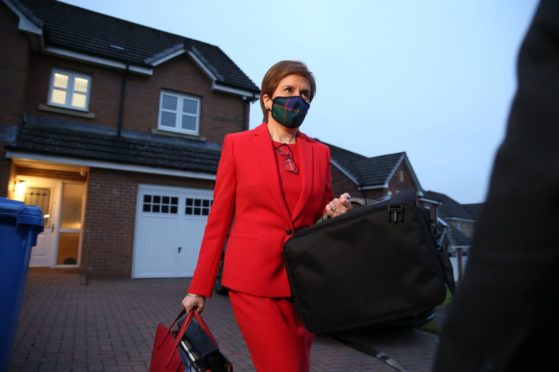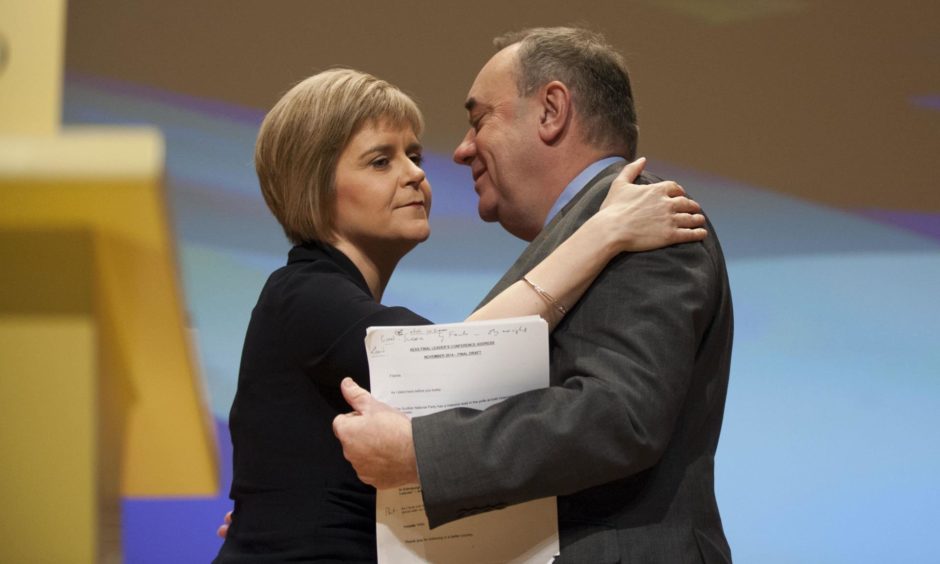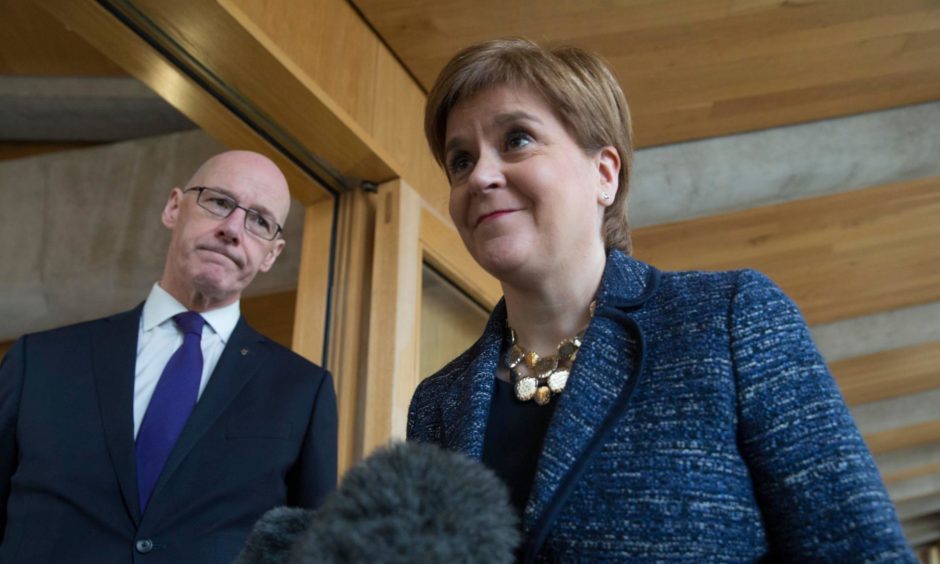The first minister said she “refused to follow the age old pattern of allowing a powerful man to use his status and connections to get what he wants”, in her evidence before MSPs on the Alex Salmond inquiry.
Nicola Sturgeon is the final witness to appear before the committee investigating the government’s handling of harassment allegations against her predecessor.
In her opening statement, the SNP leader said she “must rebut the absurd suggestion that anyone acted with malice or as part of a plot against Alex Salmond” which she said is “not based in any fact”.
Looking visibly emotional, the first minister said she is “really sad” with how things have played out involving a man she “cared about for a long time”.
She said: “I have thought often about the impact on him (Alex Salmond).
“He was someone I cared about for a long time and maybe that’s why on Friday I found myself searching for any sign, any sign at all, that he recognised how difficult this has been for others too.
“First and foremost for women who believed his behaviour to be inappropriate but also for those of us who have campaigned with him, worked for him, cared for him and considered him a friend and now stand unfairly accused of plotting against him.”
The first minister stands by the timeline of when she first became aware of allegations against Mr Salmond and disputes his account that when she met him in her home on April 2 2018, that she “knew everything” about the allegations.
On arrival at her house that day, Ms Sturgeon claims Mr Salmond asked her to read a letter he had received from the permanent secretary Leslie Evans which set out complaints had been raised against him from two women.
The first minister told MSPs that reading the letter was a “moment in my life I would never forget”.
Although he denied the allegations, Ms Sturgeon alleges that Mr Salmond gave her his account of “one of the incidents complained of which he said he had apologised for at the time”.
She said: “What he described constituted in my view, deeply inappropriate behaviour on his part, perhaps another reason why that moment is embedded so strongly in my mind.”
On her decision not to record the meeting, the first minister said she did “not want to compromise the independence or the confidentiality of the process underway”.
Ms Sturgeon said “intervening in a process that I was expressly excluded from and trying on behalf of a close associate to change the course it might take would have been an abuse of my role”.
Deputy First Minister John Swinney agreed to hand over legal advice under threat of a no-confidence vote, and acknowledged “reservations were raised” by government lawyers about the way allegations against Mr Salmond were investigated.
The Scottish Government launched an investigation into allegations of sexual harassment by the former first minister, but it was found to be unlawful and “tainted by apparent bias” because of prior contact between the investigating officer and two of the women who complained.
Mr Salmond was later acquitted of 13 charges following a criminal trial.
The first minister admitted the government made a “very serious mistake” in the investigation of complaints and that “two women were failed and taxpayers money was lost”.
The SNP leader said although she was “not aware of the error at the time” and that her “actions deserve to be scrutinised”.


